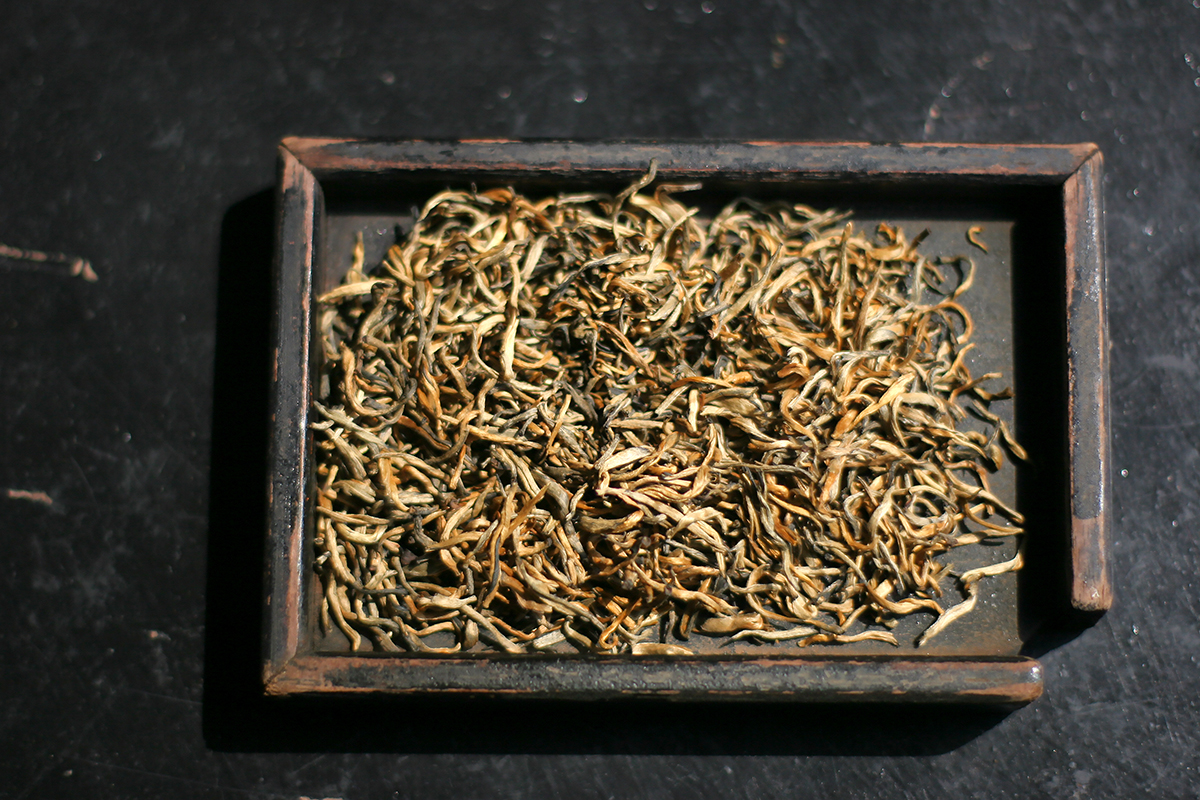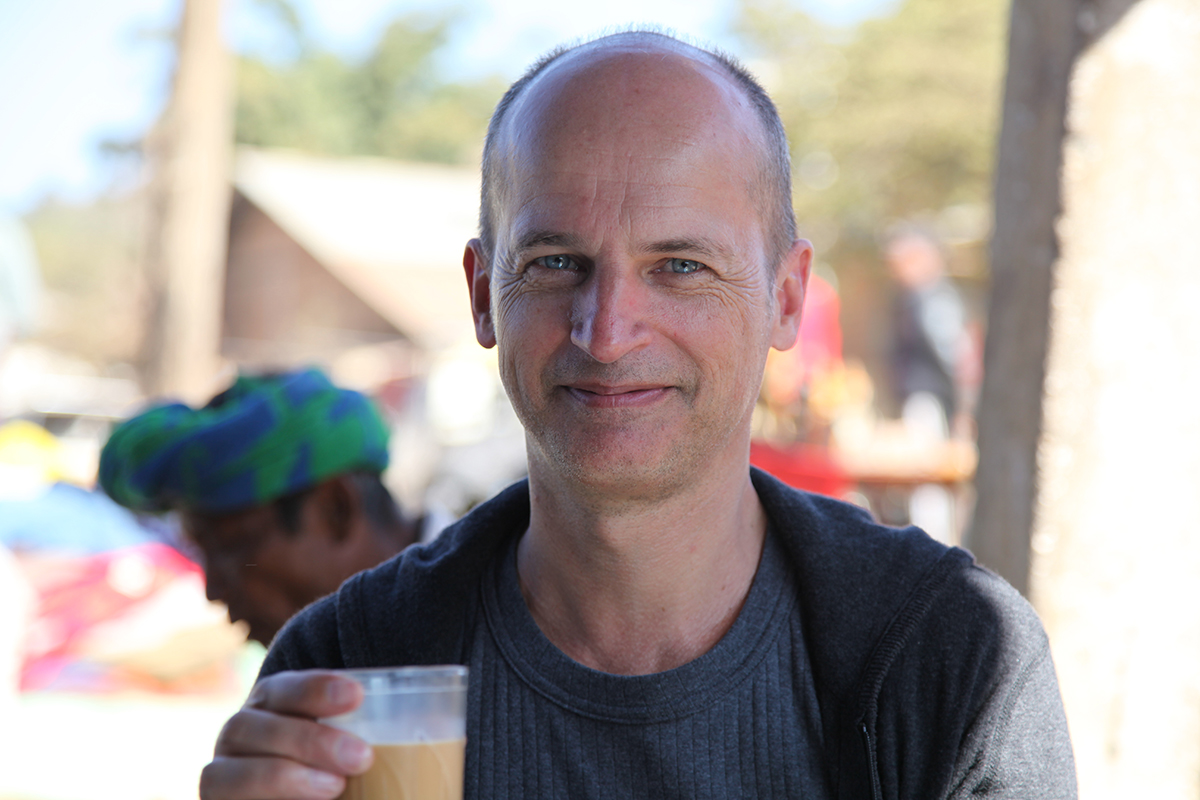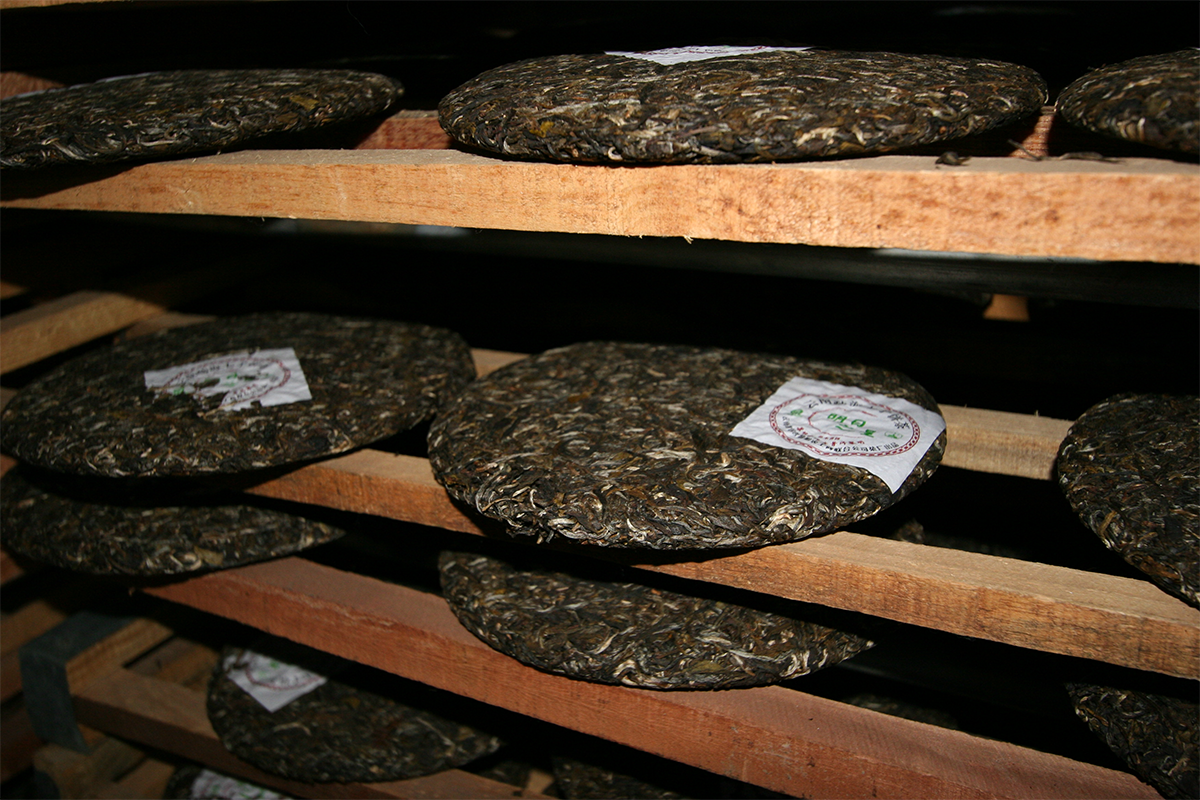Just a few days ago, Léo and I had the pleasure of tasting a sensational tea sourced from southwest China. In fact, the variety was one of the famous ‘Yunnan buds’ that is going down a treat with tea lovers all over.
I thought it would be interesting to share with you the different stages of selecting a batch of tea.
Once the quantity we want has been decided, an order is placed. Because this is a small batch tea, it will be shipped by air. No sooner will the wheels touch the ground than a sample will be whizzed over to an independent lab for testing. Although not legally required to, Palais des Thés has made it policy to test any tea that has not been awarded French agriculture biologique certification, proof that is has been organically farmed. We are looking for over a hundred different molecules to confirm that the batch complies with European standards, known for being the most stringent in the world. Only if the tea passes muster will the leaves be distributed to our boutiques. It takes on average 4-6 weeks from when the tea is sampled to it being available to buy in store. A relatively long timeframe that Palais des Thés stands by because we understand the importance of guaranteeing food safety for the good of our customers’ health.



